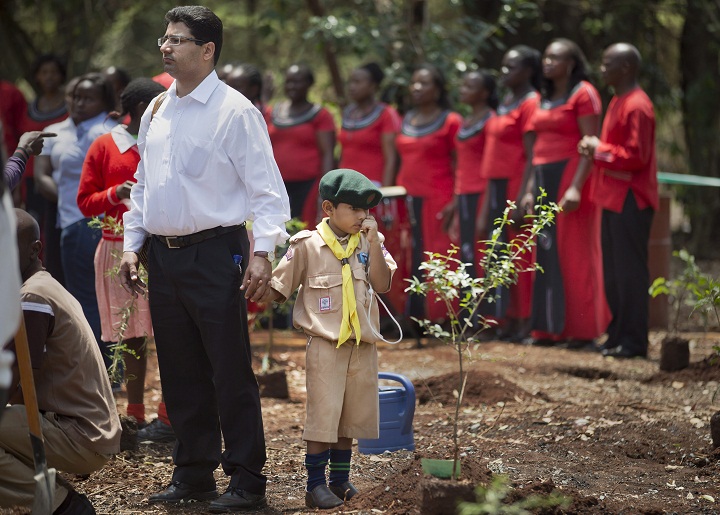NAIROBI, Kenya – One of the four Westgate Mall attackers once lived in a refugee camp of 50,000 Somali refugees in northwestern Kenya, two security officials said, highlighting Kenya’s interest in speeding up the return of nearly 500,000 Somali refugees to their home country.

Very little is known about the four gunmen who sprayed bullets into men, women and children inside Nairobi’s Westgate Mall on Sept. 21, a busy Saturday afternoon. Al-Shabab, a Somali Islamic extremist group affiliated with al-Qaida, claimed responsibility for the four-day siege of the mall that killed 67 people.
One mall attack suspect has been identified as Hassan Abdi Dhuhulow, a 23-year-old Somalia native whose family moved to Norway in 1999. Court documents revealed a second name last week – Mohammed Abdinur Said – that an official confirmed was the name of another attacker.
Read more:4 Somalis charged with aiding Westgate Mall attack
A Kenyan security official told The Associated Press that Said once lived in the Kakuma refugee camp, run by the United Nations High Commissioner for Refugees, that houses 101,000 refugees. The security official insisted on anonymity to share information not yet made public. A second security official investigating the attack told AP that more than one attacker passed through Kakuma camp.
The head of UNHCR in Kenya, Raouf Mazou, told AP on Monday that his organization has been co-operating with the Kenyan government on the Westgate investigation but said he was “not aware of any specific case and not the name that you mentioned.”
Kenya has hosted refugees for two decades and officials have long been concerned about security inside the major refugee camps, including Kakuma, which has 54,00 Somalis, and Dadaab, near the Somali border called Dadaab, where 388,000 Somalis live.
The agreement signed Sunday between Kenya, Somalia and UNHCR says that the 475,000 registered Somali refugees inside Kenya will get support when they return to their homeland – if they choose to return.
Read more: After 6 operations, Nairobi mall attack victim vows to become doctor to help people like herself
Kenya in 2011 mounted a military campaign inside Somalia largely to address insecurity on that side of the border and set the conditions for the return of the nearly a half million refugees.
Mazou said UNHCR has supported the government in its efforts to increase security inside the U.N. camps. In the last several years the camps, particularly Dadaab, have been hit by a spate of blasts by grenades and improvised explosive devices.
“Clearly there was some insecurity in the camps,” Mazou said. “Things have improved since Kenyan security has been able to deploy additional personnel in the Dadaab area.”
“This agreement is not about Kenya telling people to leave but about encouraging the international community to do more in south-central Somalia where these refugees come from,” Mazou said.



Comments